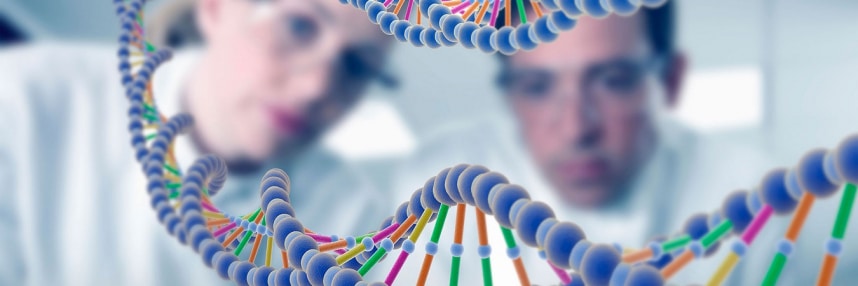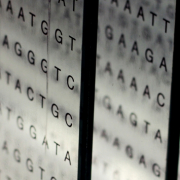Genomic sequencing in childhood cancer
As the NHS prepares to roll out genomic testing for all children with cancer, we look at the power of genomics in selecting and trialling new targeted therapies
Existing cancer drugs could benefit hundreds of child patients each year according to new research using genomic testing carried out by researchers at the Institute of Cancer Research (ICR) and the Royal Marsden Hospital in London.
“By testing tumours for specific gene mutations, we have shown it’s possible to identify new smarter, kinder treatment options for children, which may potentially give these patients much longer with their families after conventional therapies have failed,” said study author Dr Sally George, consultant paediatric oncologist at the Royal Marsden and clinical research fellow at the ICR.
Genomic sequencing and targeted drugs
The era of genomic medicine has brought the ability to predict which cancer medicines will be most effective, based on which mutations are present in the tumour genome. As well as prolonging life, targeted therapies can in some cases avoid or reduce the need for aggressive treatments such as traditional chemotherapy.
Such testing is already performed in some cases to determine the most appropriate treatment for an individual; but it is also being used to investigate new treatment targets and establish new potential uses for existing drugs.
In this recent study, researchers elected to focus on children with solid tumours such as those of the brain, central nervous system, bone and muscle. These are much rarer in children than blood cancers such as leukaemia, but have much lower survival rates.
The study examined biopsy samples from more than 200 children. A gene panel test was used to look for mutations in 91 genes known to drive the growth and spread of tumours. Half of the children had at least one ‘actionable’ mutation – ie a mutation that could be susceptible to targeted therapy. The genes most commonly affected by mutations were ATRX, CDKN2A and CTNNB1, each of which affected 12 children. These were followed by MYCN mutations in 11 children and PI3K3CA mutations in 10.
A future of genomic testing
Following the study, only 7% of the children were able to access the appropriate drug. In some cases, this was because of regulatory barriers – such as a drug only being licenced for adults, or because relevant clinical trials are not open to those under 18. In other cases, the children were already too ill to receive an experimental treatment by the time they were screened; a predicament that is set to become much less common as the NHS rolls out genome sequencing for all children with cancer.
Among the children who did receive targeted therapies, significant benefits were observed. Three children who tested positive for BRAF gene mutations associated with skin cancers were able to receive the drugs dabrafenib and trametinib. The combination held one child’s brain tumour in check for 13 months before resistance developed, and helped another child by halting tumour progression for nine months. A third child had a positive response, lasting 15 months, to dabrafenib alone.
The NHS Long Term Plan includes a commitment to offer genome sequencing to every child with cancer under the new Genomic Medicine Service. Whether children derive benefit from this will ultimately depend on access to treatments based on genomic findings as well as the development of new medications.
–









